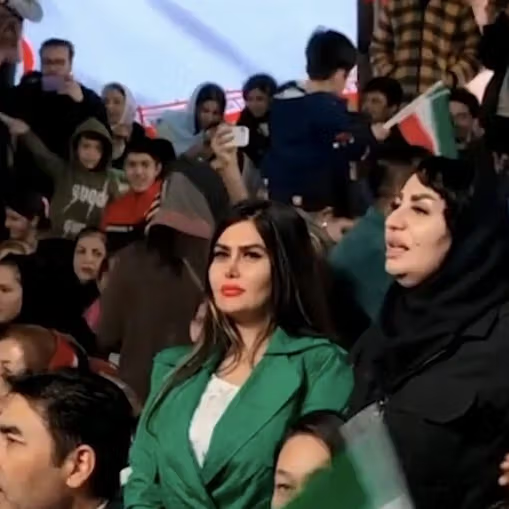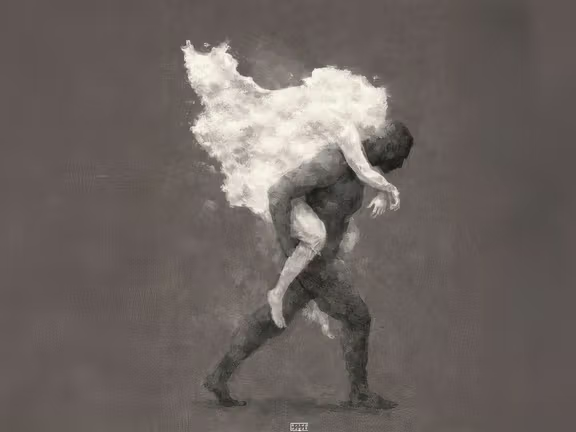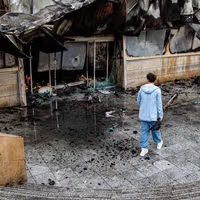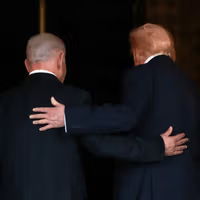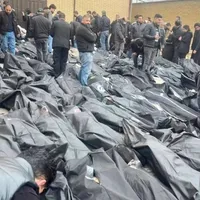Speaking at a ceremony marking the anniversary of the 1979 US embassy takeover on Monday, Khamenei urged women to remind those around them to observe Islamic dress codes.
“Remind the women around you to view the hijab as a religious, Islamic, Zahra-like and Zeynab-like matter,” he said, referring to early Islamic matriarchs.
The word choice was careful and subtle, but more than enough for the intended audience.
Following the speech, Judiciary Chief Gholamhossein Mohseni Ejei told prosecutors and citizens they “have a duty to carry out (the religious duty of) commanding good and forbidding evil,” promising full judicial backing for such actions.
Conservative voices quickly circulated Khamenei’s comments on social media, portraying them as permission to confront unveiled women.
“Does our dear Leader’s order mean anything but jihad of explanation and to command good? May those who claim he has compromised on Sharia and hijab be struck dumb!” one ultra-hardliner wrote on X.
Another posted: “Once again the Leader of the Ummah himself intervened, reminding us of the duty to enjoin hijab and forbid indecency—both in positive and preventive ways.”
Writer Mohammad Nikbakht interpreted the remarks as signaling a softer, bottom-up approach, arguing that Khamenei meant that hijab enforcement should start within families, “not through morality police, legislation, fines, or arrests.”
Rare intervention
Khamenei has rarely addressed hijab directly in the past year.
In April 2023, he accused foreign intelligence services of encouraging Iranian women to disobey the mandatory hijab and declared such defiance “religiously and politically haram.”
That statement spurred a short-lived official campaign to restore control after the Woman, Life, Freedom protests.
He did not revisit the issue publicly until now, and earlier this year appeared to sidestep an ultra-hardline lawmaker’s question about why the law had not been implemented.
Law stalled
Iran’s Parliament passed the “Hijab and Chastity Law” in September 2024, imposing sweeping new restrictions. But the Supreme National Security Council quietly suspended its enforcement amid fears of renewed unrest.
That decision was widely viewed as carrying Khamenei’s consent, but his latest remarks are now being read by hardliners as a cue to resume implementation.
In late March, police even dispersed about two dozen pro-hijab vigilantes who had camped outside parliament for over 45 days; no arrests were reported.
A user named Seyyedeh lamented online: “How many people can we warn? How long can we walk the streets? Unveiling has spread everywhere like locusts. God, take our revenge on these traitorous, indifferent officials who have no honor!!”
Political rift, rising defiance
Officials fear that reviving morality patrols or tightening hijab rules amid economic hardship could reignite mass protests.
President Masoud Pezeshkian has said he cannot enforce the law and insists that only “dialogue” can persuade women—a stance conservatives blame for paralysis.
Senior Revolutionary Guards general Hassan-Nia rebuked him this week: “Dialogue won’t fix the problem. Firm action is required. If the Leader permits, we will tear the skin off their heads.”
Meanwhile, defiance keeps growing, even in religious cities such as Qom and Mashhad.
In Tehran, unveiled women now outnumber those covered in many neighborhoods, and social media is filled with scenes of mixed gatherings, music, dancing, and women in crop tops.
“Yes, we say there shouldn’t be excessive policing,” former conservative parliament deputy speaker Ali Motahari told Pezeshkian, “but who is supposed to stop a woman who walks around with her belly button exposed?”



